LACAf Partners
![]() Formed by a multi-disciplinary team characterized by high academic and professional performance in the areas of agronomy, economics, law and applied mathematics, Agroicone´s specialists have experience in the development of quantitative tools for the design of scenarios and impact analysis, project management that require a combination of knowledge generation and promotion of multi- stakeholder dialogues.
Formed by a multi-disciplinary team characterized by high academic and professional performance in the areas of agronomy, economics, law and applied mathematics, Agroicone´s specialists have experience in the development of quantitative tools for the design of scenarios and impact analysis, project management that require a combination of knowledge generation and promotion of multi- stakeholder dialogues.
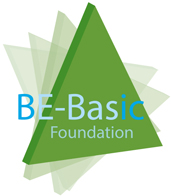 The BE-Basic Foundation (Biotechnology based Ecologically Balanced Sustainable Industrial Consortium) is an international public-private partnership that develops industrial biobased solutions to build a sustainable society. The BE-Basic Foundation initiates and stimulates collaborations between academia and industry, between scientists and entrepreneurs and between the Netherlands and abroad. Researchers from academia, industry and knowledge institutes collaborate on both fundamental science and industrial challenges. We aim for true innovations: bio-chemicals, bio-materials, bio-construction concepts and biobased monitoring tools. They are the essential building blocks for our biobased economy.
The BE-Basic Foundation (Biotechnology based Ecologically Balanced Sustainable Industrial Consortium) is an international public-private partnership that develops industrial biobased solutions to build a sustainable society. The BE-Basic Foundation initiates and stimulates collaborations between academia and industry, between scientists and entrepreneurs and between the Netherlands and abroad. Researchers from academia, industry and knowledge institutes collaborate on both fundamental science and industrial challenges. We aim for true innovations: bio-chemicals, bio-materials, bio-construction concepts and biobased monitoring tools. They are the essential building blocks for our biobased economy.
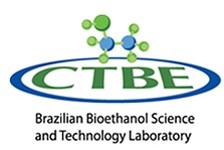 The Brazilian Bioethanol Science and Technology Laboratory (CTBE) undertakes high-level research and develops technology in the area of biofuels, and is well poised to address the global challenges of the bioeconomy. The CTBE focuses on enabling economically feasible and scalable fuel production based on biomass with minimal impact on the food chain, water supply, land use, and the environment. By recognizing biorefinery as a key supporting technology, it pursues the integration of first- and second-generation ethanol production, electricity, and products derived from green chemistry using sugarcane as primary feedstock.
The Brazilian Bioethanol Science and Technology Laboratory (CTBE) undertakes high-level research and develops technology in the area of biofuels, and is well poised to address the global challenges of the bioeconomy. The CTBE focuses on enabling economically feasible and scalable fuel production based on biomass with minimal impact on the food chain, water supply, land use, and the environment. By recognizing biorefinery as a key supporting technology, it pursues the integration of first- and second-generation ethanol production, electricity, and products derived from green chemistry using sugarcane as primary feedstock.
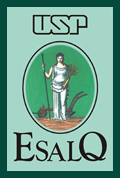 Luiz de Queiroz College of Agriculture (ESALQ) is located at the Luiz de Queiroz Campus in the city of Piracicaba, and is currently considered a Center of Excellence for Undergraduate and Graduate programs in Agricultural, Environmental, Biological and Applied Social Sciences, acknowledged for its outstanding scientific and technical performance. Its academic community is comprised of 800 faculty and staff members along with nearly 3,400 undergraduate and graduate students. Its total area (3,825.4 hectares) corresponds to 50% of the total area of USP.
Luiz de Queiroz College of Agriculture (ESALQ) is located at the Luiz de Queiroz Campus in the city of Piracicaba, and is currently considered a Center of Excellence for Undergraduate and Graduate programs in Agricultural, Environmental, Biological and Applied Social Sciences, acknowledged for its outstanding scientific and technical performance. Its academic community is comprised of 800 faculty and staff members along with nearly 3,400 undergraduate and graduate students. Its total area (3,825.4 hectares) corresponds to 50% of the total area of USP.
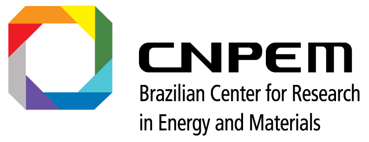 Luiz de Queiroz College of Agriculture (ESALQ) is located at the Luiz de Queiroz Campus in the city of Piracicaba, and is currently considered a Center of Excellence for Undergraduate and Graduate programs in Agricultural, Environmental, Biological and Applied Social Sciences, acknowledged for its outstanding scientific and technical performance. Its academic community is comprised of 800 faculty and staff members along with nearly 3,400 undergraduate and graduate students. Its total area (3,825.4 hectares) corresponds to 50% of the total area of USP.
Luiz de Queiroz College of Agriculture (ESALQ) is located at the Luiz de Queiroz Campus in the city of Piracicaba, and is currently considered a Center of Excellence for Undergraduate and Graduate programs in Agricultural, Environmental, Biological and Applied Social Sciences, acknowledged for its outstanding scientific and technical performance. Its academic community is comprised of 800 faculty and staff members along with nearly 3,400 undergraduate and graduate students. Its total area (3,825.4 hectares) corresponds to 50% of the total area of USP.
Cenicaña is a private, non-profit corporation founded in 1977 on the initiative of the Association of Sugar Cane Growers of Colombia, Asocaña, and financed with donations of sugar mills and cane suppliers located in the Cauca river valley. Its financing resources correspond to direct donations made by the sugar mills Carmelita, Central Tumaco, Incauca, La Cabaña, Manuelita, María Luisa, Mayagüez, Pichichí, Providencia, Riopaila-Castilla, Risaralda and Sancarlos, and their suppliers of sugarcane. It also advances projects co-financed by other entities, especially within the framework of programs coordinated by Colciencias, and offers specialized services to mills and cane growers.
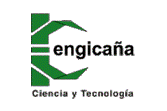 CENGICAÑA, was created by the Guatemalan Sugar Planters Association, ASAZGUA, in 1992 to support the technological advance of the sugar agroindustry, with the aim of improving production and productivity of sugarcane and its derivatives. It is financed by the sugar-mills that comprise Guatemalan sugar agroindustry, whose contribution to the Centers budget is proportional to their sugar production.
CENGICAÑA, was created by the Guatemalan Sugar Planters Association, ASAZGUA, in 1992 to support the technological advance of the sugar agroindustry, with the aim of improving production and productivity of sugarcane and its derivatives. It is financed by the sugar-mills that comprise Guatemalan sugar agroindustry, whose contribution to the Centers budget is proportional to their sugar production.
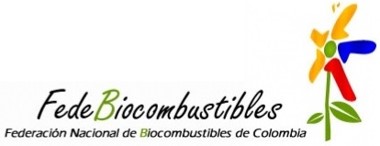 Contribute to sustainable development of biofuels industry in Colombia, by representing the interests of its members, the management of sectoral policy, information production and dissemination of knowledge, promoting research and development of new technologies and generation employment, environmental protection and diversification of the energy scenario.
Contribute to sustainable development of biofuels industry in Colombia, by representing the interests of its members, the management of sectoral policy, information production and dissemination of knowledge, promoting research and development of new technologies and generation employment, environmental protection and diversification of the energy scenario.
 Consulting company specializing in soil mapping in various levels of detail. In the sugar-energy sector it also provides CTC Production Environments, as well as other products.
Consulting company specializing in soil mapping in various levels of detail. In the sugar-energy sector it also provides CTC Production Environments, as well as other products.
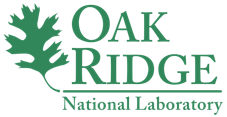 Oak Ridge National Laboratory is the largest US Department of Energy science and energy laboratory, conducting basic and applied research to deliver transformative solutions to compelling problems in energy and security.
Oak Ridge National Laboratory is the largest US Department of Energy science and energy laboratory, conducting basic and applied research to deliver transformative solutions to compelling problems in energy and security.
 Begun in 2009, the Global Sustainable Bioenergy (GSB) initiative seeks to contribute to a sustainable world by expanding, disseminating, and applying knowledge of producing bioenergy on a very large scale in ways that benefit people and the environment.
Begun in 2009, the Global Sustainable Bioenergy (GSB) initiative seeks to contribute to a sustainable world by expanding, disseminating, and applying knowledge of producing bioenergy on a very large scale in ways that benefit people and the environment.
 Founded in 1769, Dartmouth is a member of the Ivy League and consistently ranks among the world's greatest academic institutions. Dartmouth has forged a singular identity for combining its deep commitment to outstanding undergraduate liberal arts and graduate education with distinguished research and scholarship in its three leading professional schools—the Geisel School of Medicine, Thayer School of Engineering, and the Tuck School of Business.
Founded in 1769, Dartmouth is a member of the Ivy League and consistently ranks among the world's greatest academic institutions. Dartmouth has forged a singular identity for combining its deep commitment to outstanding undergraduate liberal arts and graduate education with distinguished research and scholarship in its three leading professional schools—the Geisel School of Medicine, Thayer School of Engineering, and the Tuck School of Business.
![]() Imperial has over 6,000 postgraduate students, publishes more than 10,000 academic papers annually and has an annual research income of £350 million. Imperial is home to the greatest concentration of high-impact research of any major UK university and has over 500 corporate partners. Together with Imperial Innovations, the College's technology transfer office, Imperial has created over 150 companies, signed more than 500 licences and has helped many medicines and products get to market.
Imperial has over 6,000 postgraduate students, publishes more than 10,000 academic papers annually and has an annual research income of £350 million. Imperial is home to the greatest concentration of high-impact research of any major UK university and has over 500 corporate partners. Together with Imperial Innovations, the College's technology transfer office, Imperial has created over 150 companies, signed more than 500 licences and has helped many medicines and products get to market.
Michigan State University Spartans work every day to advance the common good in uncommon ways. Together we tackle some of the world’s toughest problems to find solutions that make life better. The nation’s pioneer land-grant university, MSU is one of the top research universities in the world. Home to nationally ranked and recognized academic, residential college, and service-learning programs, MSU is a diverse community of dedicated students and scholars, athletes and artists, scientists and leaders.
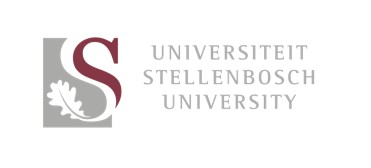 The University is amongst South Africa's leading tertiary institutions based on research output, student pass rates and rated scientists, and is recognised internationally as an academic institution of excellence. It boasts the highest weighted research output per full-time academic staff member of all South African universities and the second-highest number of scientists in South Africa who have been rated by the National Research Foundation (NRF). It also has the highest student success rate in the country.
The University is amongst South Africa's leading tertiary institutions based on research output, student pass rates and rated scientists, and is recognised internationally as an academic institution of excellence. It boasts the highest weighted research output per full-time academic staff member of all South African universities and the second-highest number of scientists in South Africa who have been rated by the National Research Foundation (NRF). It also has the highest student success rate in the country.
 The UDM aims to create centers of excellence that respond to the challenges of the economic and social development of Mozambique and the region.
The UDM aims to create centers of excellence that respond to the challenges of the economic and social development of Mozambique and the region.
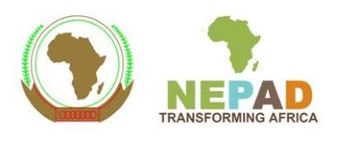 The NEPAD Planning and Coordinating Agency (NEPAD Agency) was established in 2010 as an outcome of the integration of NEPAD into AU structures and processes. The NEPAD Agency is the implementing agency of the African Union that advocates for NEPAD, facilitates and coordinates the development of NEPAD continent-wide programmes and projects, mobilises resources and engages the global community, regional economic communities and member states in the implementation of these programmes and projects. The NEPAD Agency replaced the NEPAD Secretariat which had coordinated the implementation of NEPAD programmes and projects since 2001.
The NEPAD Planning and Coordinating Agency (NEPAD Agency) was established in 2010 as an outcome of the integration of NEPAD into AU structures and processes. The NEPAD Agency is the implementing agency of the African Union that advocates for NEPAD, facilitates and coordinates the development of NEPAD continent-wide programmes and projects, mobilises resources and engages the global community, regional economic communities and member states in the implementation of these programmes and projects. The NEPAD Agency replaced the NEPAD Secretariat which had coordinated the implementation of NEPAD programmes and projects since 2001.


